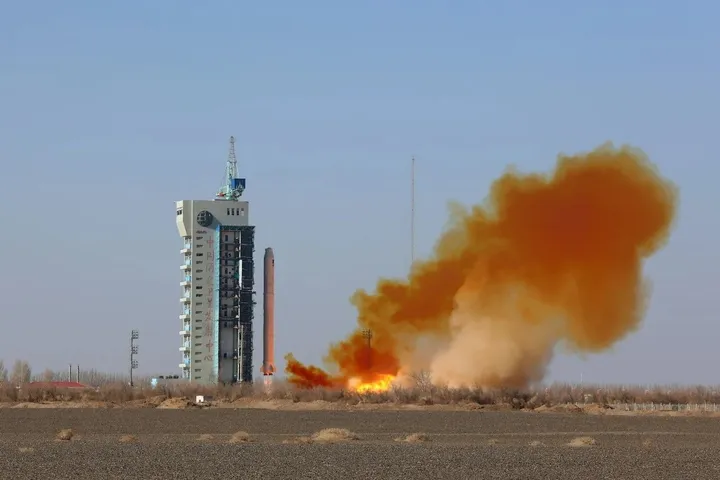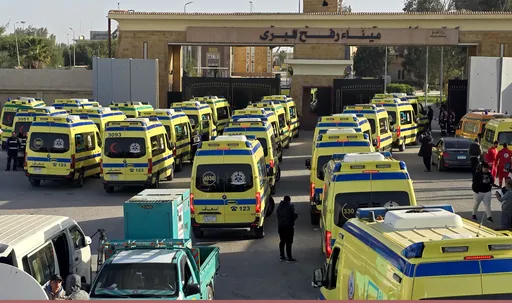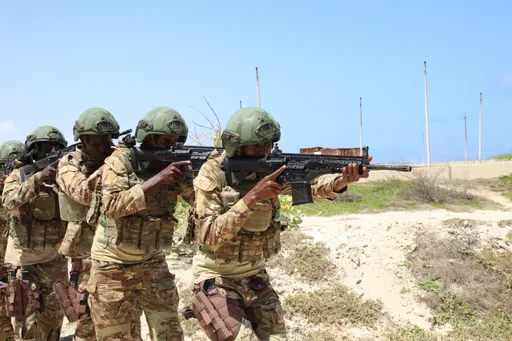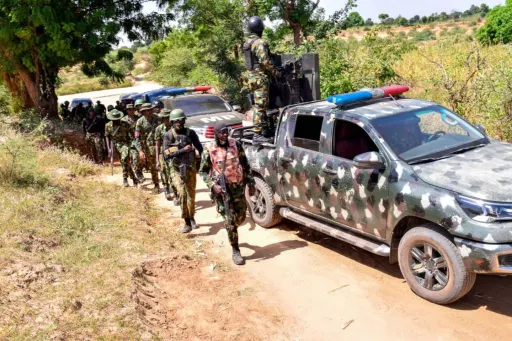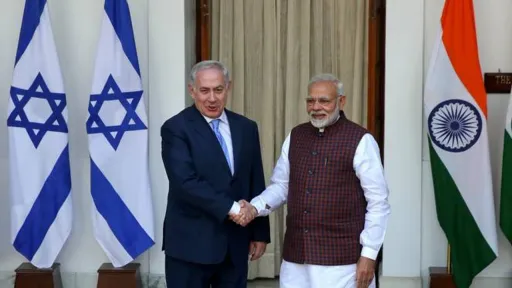Serving as the main commercial artery for Somalia, Mogadishu Port stands today as a symbol of country’s resilience and its reconnection to the global economy.
Spanning 350,000 square metres and hosting the world’s three largest container shipping lines, the port is the primary gateway for nearly all of the country's import needs, from essential food supplies to the construction materials needed to rebuild the nation.
“Products that enter here are distributed across the entire country. Mogadishu port also serves as a collection hub,” explained Mogadishu Port Director Umut Yurdakul in an interview with Anadolu Agency. “We can call it the lifeline of the country.”
The port's journey mirrors that of the nation it serves. Construction began in 1973 and continued in stages until 1983, establishing it as a key piece of national infrastructure.
However, with the outbreak of the civil war in 1991, the port was forced to close. For 15 years, until 2006, its gates remained shut.
“During that time, the Somali people were cut off from global products and developments due to the home challenges,” Yurdakul noted, reflecting on a period of profound isolation for the country.
A new dawn: The revival of a gateway
The catalyst for the port’s revival came in the wake of President Recep Tayyip Erdogan’s historic visit to Somalia in 2011, a time when the country was facing a severe drought and humanitarian crisis. That visit paved the way for Turkish company Albayrak Group to begin its operations in the country.
Ahmet Sami İşler, Chairman of the DEİK Somalia Business Council, recalled the motivation. “Somalia was in a very difficult situation then, in crisis. We said: let’s not just look at the day-to-day, let’s do something permanent,” he noted.
Restoration work began as part of a broader effort to strengthen the country economically. Reviving the port was identified as the most critical step, as both humanitarian aid and commercial trade were entirely dependent on a functioning maritime gateway.
International success
In September 2014, under a concession agreement, Albayrak Group officially took over both the operation and the modernisation of Mogadishu Port.
“Thanks to their efforts, the port has been raised to international standards,” Yurdakul stated.
“At this point, we are providing services at an international level. Once this was proven, global trading companies began to embrace the port. In a sense, thanks to this port, Somalia has reopened itself to the world.”
This success has had a tangible impact on bilateral trade. According to İşler, the revitalised port has boosted the trade volume between Somalia and Türkiye to half a billion dollars, with about 70% of Somalia's imports now coming from Türkiye.
While global logistics shifts have caused some fluctuations, Yurdakul confirmed that Türkiye remains the largest supplier, alongside imports from India, China, and the Middle East.
“We have been operating this port for about 11 years. We are making every kind of investment,” said İşler.
“We are happy with Somalia, and hopefully Somalia is happy with us. At this point, we have become synonymous with Somalia.”
Navigating challenges and seizing opportunities
Despite the successes, İşler drew attention to ongoing challenges, particularly issues with visas and residence permits for both Turkish and Somali businesspeople.
“If these problems are not solved, we will lose our commercial gains day by day,” he warned.
“This places serious responsibilities on our leaders, political representatives, ministers, and embassies.”
Yet, he remains optimistic, framing the country’s security challenges as part of a larger equation of risk and reward.
“Where there is risk, there is opportunity,” İşler affirmed. “For those who know how to take risks, there are great opportunities here. We tell Turkish businesspeople and entrepreneurs: Come to Somalia, see it for yourself.’’
Beyond the port, İşler added, the group also rebuilt a destroyed hospital in 2012, turning it into the Recep Tayyip Erdoğan Training and Research Hospital—now one of the largest and most advanced hospitals in Africa—officially opened in 2015 with the attendance of President Erdoğan.
“We undertook the construction of Somalia’s Presidential Palace,” İşler stated, adding: “We did our best and built this presidential building for the President, the Somali state, and the Somali people’’


